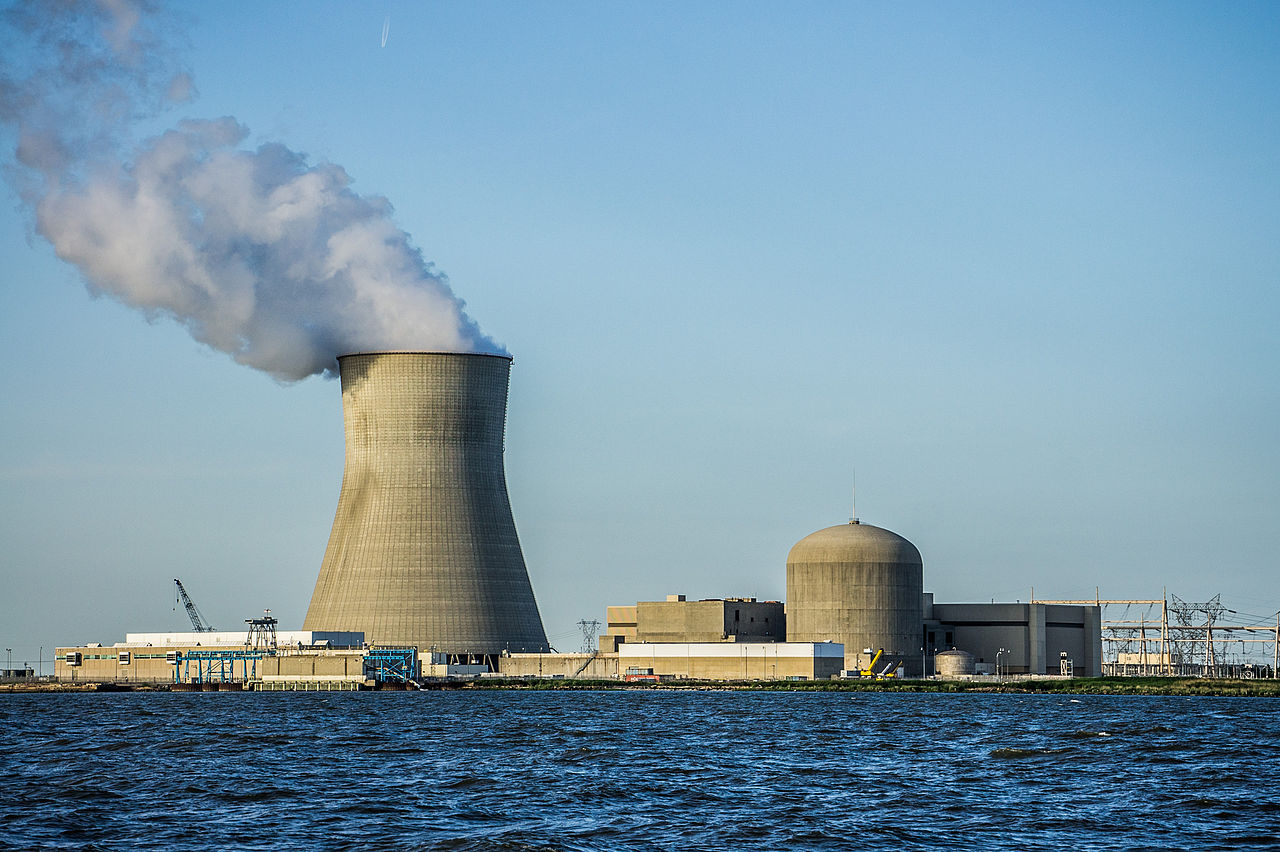The American Nuclear Society applauds passage of the bipartisan infrastructure bill
Statement from Craig Piercy, Executive Director and CEO of the American Nuclear Society:

Statement from Craig Piercy, Executive Director and CEO of the American Nuclear Society:

Marzano
The American Nuclear Society has selected Matthew Marzano to serve as the 2022 Glenn T. Seaborg Congressional Science and Engineering Fellow. Marzano is a senior reactor operator at Exelon Generation’s Braidwood nuclear power plant in Braidwood, Ill.
“Matt is in a unique position to provide significant technical assistance to the U.S. Congress on nuclear energy, particularly now as there are important discussions that will shape the future of U.S. energy policy,” said Harsh S. Desai, chair of the ANS Congressional Fellowship Committee and a former congressional fellow himself.
“Members of Congress and their staff will greatly benefit from Matt’s depth of experience in commercial and defense nuclear power plant operations,” Desai said. “The fellowship will also be an opportunity for Matt to develop his policy expertise and learn ‘how the sausage is made.’”
The Senate Appropriations Committee on Wednesday approved three of the 12 fiscal year 2022 funding measures, including an Energy and Water Development bill that provides the Department of Energy’s Office of Nuclear Energy (NE) with an increase of 5.5 percent over last year’s allocation—half of the boost recommended for NE last month by House appropriators.
The Senate panel advanced the legislation by a vote of 25–5, with all five no votes from GOP members: Sens. Mitch McConnell (R., Ky.), John Kennedy (R., La.), Mike Braun (R., Ind.), Bill Hagerty (R., Tenn.), and Marco Rubio (R., Fla.).

The American Nuclear Society recently revised Position Statement #18: Transportation of Radioactive Materials and Position Statement #83: Assuring U.S. Global Nuclear Leadership. Both were posted on the ANS website in July after being approved by the Board of Directors.

The newly created Spanish Communications Subcommittee (SCS) of the ANS Diversity and Inclusion Committee needs translators, transcribers, and original content developers. Already the group has attracted interested members from all over the world, including Argentina, Spain, Chile, Mexico, and the United States.
The American Nuclear Society welcomes the introduction of H.R. 4819, or the National Nuclear University Research Infrastructure Reinvestment Act of 2021, which aims to boost the educational and research capabilities of our universities’ nuclear science and engineering programs. Strengthening our universities' nuclear education and research is vital to preserving and expanding America’s largest carbon-free energy source as well as saving and prolonging healthy lives through the use of medical isotopes.
The nuclear community has been one of the safest and lowest-risk industries in the world, allowing it to compete in a crowded energy sector without compromise. This defining ethos is predicated on strong, emotionally safe cultures that have enabled the nuclear power sector to honestly and transparently learn from notable mistakes, such as the design flaws that led to the 2011 Fukushima Daiichi accident, resulting in a safer, more competitive industry.
The United States and the Republic of Ghana have signed a nuclear cooperation memorandum of understanding. The NCMOU is a diplomatic instrument that, according to the U.S. State Department, strengthens and expands “strategic ties between the United States and a partner country by providing a framework for cooperation on civil nuclear issues and for engagement between experts from government, industry, national laboratories, and academic institutions.”
The House Committee on Appropriations last week approved an Energy and Water Development funding bill for fiscal year 2022 that provides an 11 percent increase for the Department of Energy’s Office of Nuclear Energy.
Reported favorably out of committee on July 16 via a party-line vote of 33 to 24, the House bill sports a total price tag of $53.2 billion, an increase of $1.5 billion from the FY 2021 enacted level. (The committee’s official report on appropriations for the next fiscal year can be found here.)
“On behalf of the 10,000 members of the American Nuclear Society, I thank House Appropriations Subcommittee on Energy and Water Development and Related Agencies Chairwoman Marcy Kaptur, Ranking Member Mike Simpson, and the full House Appropriations Committee for including increased support for nuclear R&D and education and workforce programs in the Fiscal Year 2022 Energy and Water appropriations bill.
Advocacy group Nuclear Matters is urging members of the nuclear community to send a pre-drafted letter to their representatives on Capitol Hill in support of companion bills H.R. 4024 and S. 2291, the Zero-Emission Nuclear Power Production Credit Act of 2021. The legislation calls for amending the Internal Revenue Code to establish a tax credit to help existing merchant nuclear plants continue operations.

The Department of Energy's Office of River Protection and the Richland Operations Office hosted a roundtable discussion recently with tribal nations located near the Hanford Site to review the Department’s tribal government policy—Order 144.1, the American Indian and Alaska Native Tribal Government Policy—and discuss opportunities for strengthening tribal consultation.
The Office of River Protection is within the purview of the DOE's Office of Environmental Management (EM). The Hanford Site, in eastern Washington state, is a 586-square-mile site that was used as a nuclear production complex during the World War II era.
.jpg)
In a July 1 letter to President Biden, ANS President Steven Nesbit and ANS Executive Director/CEO Craig Piercy stated that a full complement of five commissioners is essential to the effectiveness of the Nuclear Regulatory Commission in protecting public health and safety while enabling the deployment and applications of nuclear technology.

Motivated by February’s Texas grid debacle and last month’s Electric Reliability Council of Texas (ERCOT) alert pleading with residents to conserve energy, Gov. Greg Abbott earlier this week issued a letter to members of the Public Utility Commission of Texas (PUC), directing them to take immediate action to improve electric reliability across the state. According to the governor’s office, the directives build on reforms passed in the 87th legislative session to increase power generation capacity and ensure the reliability of the Texas power grid.

Two reports submitted last week to the European Commission to help it decide whether to include nuclear energy in the “EU taxonomy”—a classification system establishing a list of environmentally sustainable economic activities for the European Union—could end up prolonging the decision-making process, as the reports are not in full agreement on the matter.

The Nuclear Regulatory Commission has halted efforts to consider allowing U.S. nuclear power plant owners to request 40-year license renewals for their facilities, the agency announced on Facebook and Twitter on July 2. Currently, the maximum potential operating lifespan for a plant is 80 years: 40 years with the original license, 20 more with an initial license renewal, and another 20 with a second renewal.
Vacancies undermine the U.S. Nuclear Regulatory Commission’s mission
The American Nuclear Society (ANS) requests President Biden restore the U.S. Nuclear Regulatory Commission (NRC) to five commissioners by naming and expediting nominees to the agency. The impending vacancy of Commissioner Annie Caputo’s seat after June 30 will reduce the five-member NRC to three commissioners. NRC commissioners are appointed by the president and confirmed by the Senate for staggered five-year terms.
House committee urged to oppose bans on U.S.-China nuclear energy cooperation
LaGrange Park, IL – The American Nuclear Society (ANS) urges Congress to oppose any amendment to H.R. 3524 – Ensuring American Global Leadership and Engagement Act – that bans U.S.-China nuclear energy cooperation. The House Foreign Affairs Committee (HFAC) is slated to markup H.R. 3524 on June 30.
The American Nuclear Society sent a letter this morning to the chairman and the ranking member of the House Foreign Affairs Committee, urging them to oppose any amendments to H.R. 3524, the Ensuring American Global Leadership and Engagement Act, that would disallow U.S. cooperation with China in the field of civil nuclear energy.
The bill, introduced on May 25 by the Foreign Affairs Committee chairman, Rep. Gregory Meeks (D., N.Y.), was scheduled for markup by the committee this afternoon at 1:00 (EDT).

New Jersey’s Public Service Enterprise Group has announced its intention to achieve net-zero emissions by 2030, shaving two decades off its previously announced target date of 2050. PSEG is owner of the Hope Creek nuclear plant and is co-owner, with Exelon, of the Salem plant.